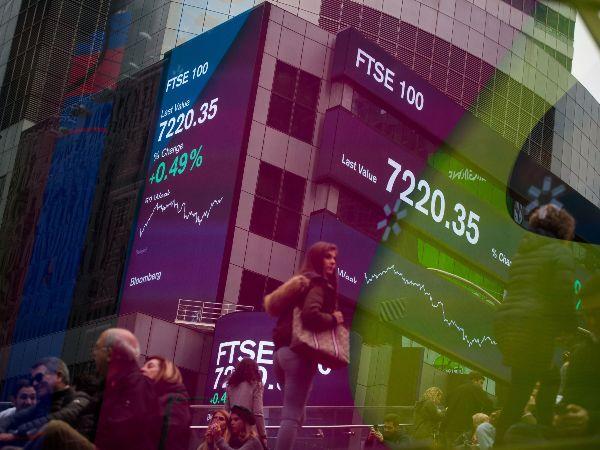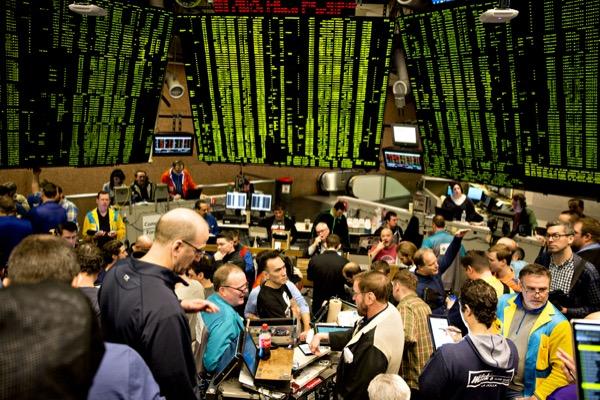Will the FTSE 100 finally beat the S&P 500 in 2022?
The S&P 500’s bloated tech stocks could soon be hammered by tightening monetary policy. And with interest rates rising, it might finally be time for the FTSE 100 to shine.
 Source: Bloomberg
Source: Bloomberg
The FTSE 100 hit a 22-month high yesterday, rising 0.9% to close at 7,611 points. It last hit this level in January 2020, before the covid-19 pandemic saw the index collapse over 30% in the space of a month. And its 10.87% drop on 12 March 2020 was its largest single-day loss since Black Monday in 1987.
But market sentiment was positive yesterday, as Unilever’s rejected £50 billion bid for GlaxoSmithKline’s consumer healthcare arm sent ripples of speculation through investors of futures mergers and acquisitions of other undervalued FTSE 100 stocks.
FTSE 100 and S&P 500: pandemic performance
The S&P 500 saw a similar crash in the early days of the pandemic, falling 20% to 2,711 points by 20 March 2020. But it recovered by August, in just five months compared to the UK index’s 22. And at 4,663 points today, it’s worth 38% more than it was prior to the onset of the pandemic.
And it’s tech stocks that have seen the S&P 500 soar. According to DataTrek, the S&P 500’s technology sector, plus Facebook, Amazon and Tesla, is worth 40% of the index. And co-founder Nicholas Colas believes this weighting will rise above 50% ‘long before’ 2030.
Meanwhile, according to Refinitiv, only 2% of FTSE 100 stocks are in the tech sector. While Darktrace, Wise and Oxford Nanopore launched their Initial Public Offerings last year, Paul Marshall of £40 billion Marshall Wace, believes the UK risks becoming ‘a sort of Jurassic Park.’ Simon French, Chief Economist of Panmure Gordon believes the country ‘is tenfold underweight in the part of the economy growing faster, and which is attracting high valuations.’
And these high valuations are based on explosive growth fuelled by ultra-loose monetary policy. 80% of all US dollars were printed between January 2020 and October 2021. The Federal Reserve’s balance sheet has increased by $4.5 trillion since the beginning of the pandemic. And it’s kept interest rates at record lows. Much of this money fed into tech— with titan Apple topping $3 trillion dollars earlier this month.
And lockdowns have also helped tech stocks grow organically. As offices, shops and gyms all shut, the likes of Peloton, DocuSign, and Zoom exploded due to the demand for tech-driven work and leisure solutions.
 Source: Bloomberg
Source: Bloomberg
FTSE 100: time to shine
But the credit bonanza is likely to be over soon. The Federal Reserve has already reduced its quantitative easing program. Goldman Sachs analyst Jan Hatzius believes the central bank will raise its base rate four times in 2022. And JP Morgan Chief Economist Michael Feroli concurs, explaining ‘Fed officials are coming to the same conclusion that the labor market is very tight, making it a tough sell to hold off on the first hike until June, our prior call.’ In further bad news, coronavirus deaths are up 36%, and hospitalisations 60%, in the past fortnight, with Surgeon General Dr Vivek Murphy warning ‘the next few weeks will be tough.’
Meanwhile, the Bank of England has already increased the bank rate from 0.1% to 0.25%. And with highly anticipated inflation statistics due tomorrow, the pressure to raise it further could be intense. But FTSE 100 bank stocks HSBC, Lloyds, NatWest and Barclays will profit from rate rises.
And cabinet minister Michael Gove believes the UK should now ‘learn to live’ with coronavirus. The legal requirement for infected persons to self-isolate is likely to be scrapped, and the World Health Organisation believes there is ‘light at the end of the tunnel’ for the UK. Travel stocks IAG and Rolls-Royce could soar as pandemic restrictions are lifted. And BP and Shell are due to continue rising, with the Bank of America predicting Brent Crude will soon reach $120 a barrel.
Co-fund manager of Scottish Mortgage Investment Trust, James Anderson, argues that the FTSE 100 is ‘really a 19th century’ index, due to its over-reliance on banking and oil stocks. The trust has delivered exceptional returns on its early US tech investments, but with rates rising, it may be a double-edged sword in 2022.
And in this new era of tightening monetary policy, the FTSE 100’s dearth of innovation may become its unlikely advantage.
Trade what you want, when you want with the UK’s No.1 trading provider.* We have over 80 top global indices with more trading hours than anyone else. Find out more about indices trading or open an account to trade now.
*Based on revenue excluding FX (published financial statements, June 2020).







0 Comments
Recommended Comments
There are no comments to display.
Create an account or sign in to comment
You need to be a member in order to leave a comment
Create an account
Sign up for a new account in our community. It's easy!
Register a new accountSign in
Already have an account? Sign in here.
Sign In Now